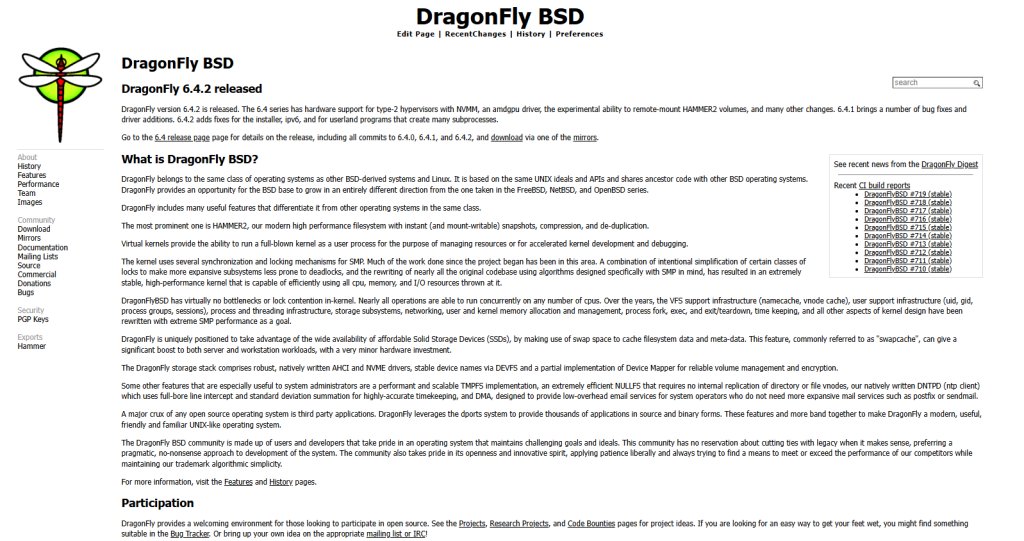DragonFly BSD is an open-source, free operating system that belongs to the BSD Unix family. It first emerged in 2003, initiated by Matt Dillon following disagreements with the development direction of FreeBSD 5.x—especially regarding its approach to SMP (Symmetric Multiprocessing) support. DragonFly BSD set out to build a modern, high-performance, and highly reliable operating system that’s also easy to maintain, with strong emphasis on scalability and native clustering capabilities.
Key Features:
- Lightweight, High-Performance Kernel: Designed for simplicity and efficiency, reducing complexity and lock contention.
- True Symmetric Multiprocessing (SMP): From day one, fine-grained SMP has been a core focus, allowing the kernel to run smoothly across multiple CPU cores without bottlenecks.
- Innovative File Systems: Introduced its own HAMMER and HAMMER2 file systems, which offer strong data integrity, instant snapshots, historical data browsing, and masterless multi-master replication—ideal for cluster environments.
- Virtual Kernel (VKERNEL): A unique feature that lets users run kernel instances in user space, making kernel development, testing, and lightweight virtualization much easier.
- User-Space Friendliness: Pushes many traditional kernel tasks into user space for a leaner, more stable kernel.
- Network Performance: Boasts a high-performance network stack optimized for handling large numbers of concurrent connections.
- Cluster-Native Vision: Aims to create a shared-nothing cluster operating system where multiple machines can seamlessly share file systems and resources via the HAMMER protocol. While this vision is still unfolding, foundational elements—especially the file system—are already in place.
DragonFly BSD is a distinctive and ambitious project. It stands out for its groundbreaking kernel design, advanced file systems, and bold vision for decentralized clustering. It’s an excellent fit for server environments that demand high performance, strong data reliability, and snapshot capabilities. It’s also a great platform for OS enthusiasts and researchers interested in cutting-edge system design. While it may not have the same broad hardware support or general-purpose appeal as FreeBSD or Linux, it delivers exceptional performance and innovation in its areas of focus.
